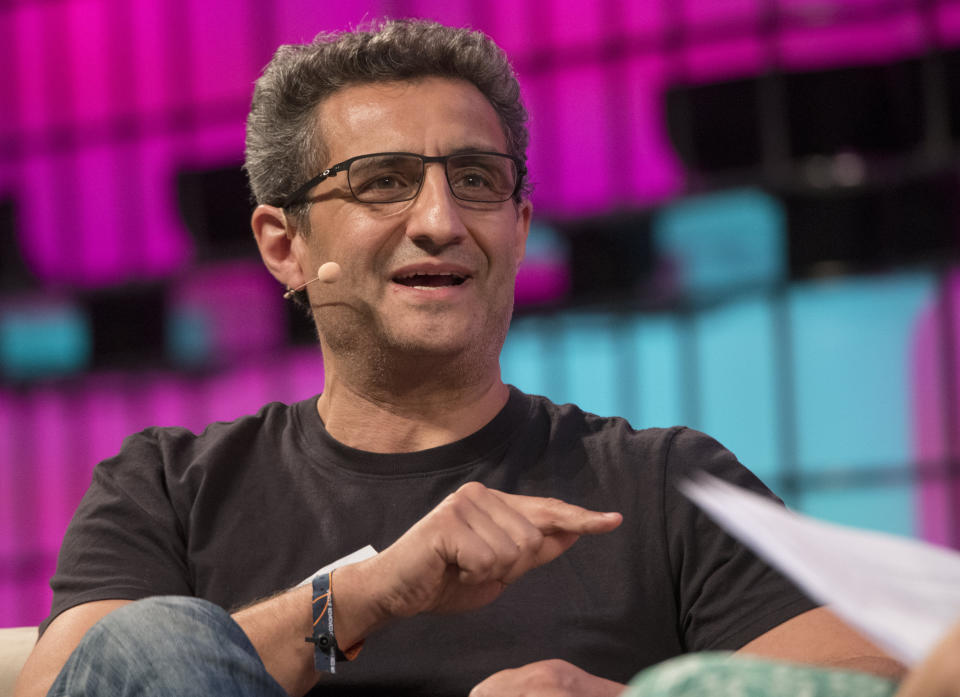Facebook Messenger head reveals one way it's trying to be more like Snapchat
Facebook Messenger wants to get more ephemeral, says a Facebook executive.
During an interview with Yahoo Finance on Tuesday at Facebook’s F8 annual developers conference, Facebook VP of Messenger Stan Chudnovsky suggested messages could become more ephemeral in nature, somewhat similar to the way Snapchat (SNAP) messages disappear over time (though he did not mention Snapchat by name). Ephemeral messaging would be just one of a number of announced features and updates Messenger plans on rolling out in the months and years to come.
“Why not add more ephemerality to messages themselves, as we're going to be working on those things going forward,” Chudnovsky told Yahoo Finance at F8 on Tuesday. “The same could come to groups and conversations in groups. So why not go there?”
Certainly, when it comes to emulating Snap and features like Stories, Facebook has already gone there before. Since Instagram rolled out Instagram Stories in August 2016, the Stories format has become a big source of user engagement for Facebook across its properties. Now, Instagram Stories has well over 500 million daily users, while Facebook and Messenger Stories additionally have 500 million daily users.

For Messenger and Facebook, it’s all part of CEO Mark Zuckerberg’s push towards a “privacy-focused” messaging and social networking platform following a year of controversies, including the Cambridge Analytica scandal, in which voting firm Cambridge Analytica harvested the data of up to 87 million Facebook users, as part of an effort to elect Donald Trump during the 2016 U.S. presidential election. In a Facebook post on March 6, Zuckerberg added that private messaging, ephemeral stories, and small groups are now “by far the fastest growing areas of online communication.”
The long road to encrypted messages
Also at F8, Messenger committed to eventually make messages “end-to-end encrypted” by default, so that all messages, photos, videos, documents, and calls are secured and won’t fall into the wrong hands. But getting to a point where all messages will be encrypted will take a long time, explained Chudnovsky.
“This [end-to-end encryption] is something we're going to work on going forward, and it will take way longer, and the reason why it's going to take way longer is because we want to figure out the way to do it and thrive,” added Chudnovsky. “That means consulting with governments, with different policymakers with different stakeholders like privacy advocates and safety advocates. Those consultations are going to take time. We don't have all the answers right now… We need to figure out what the right answers are, and only then we can start releasing those features for our users.”
Messenger doesn’t use encrypted messaging by default like WhatsApp does, but the messaging app currently offers a feature called Secret Conversation, which people can use to kickstart an encrypted message thread.
An update that moves at LightSpeed
In addition to encrypted messaging, Messenger teased a leaner, faster version of the app called LightSpeed. The Messenger team claims this version will take up a fraction of space on devices — 70 MB less than the current version of Messenger version — and launch in a fraction of the time. The Messenger team also said in its announcement that some features will make the jump to LightSpeed while others won’t.
According to Chudnovsky, popular features like video chat will make it into LightSpeed. That isn’t surprising given 410 million monthly active users connect via video chat, according to Messenger, with the amount of time users spend in video chat on Messenger growing 40% year-over-year. The Facebook executive also said smaller features like “gradients,” the ability to use multiple colors to customize chat bubbles, will also be included in LightSpeed. Chudnovsky declined to specify which features would not make the cut.
“We’re not necessarily thinking about what’s not going to make it,” he said. “We’re thinking about what [features] are going to be in wave 1, what’s going to be in wave 2, what’s going to be in wave 3. We’re going to make sure whatever people love using on Messenger, they can continue to use going forward with LightSpeed.”
If and when Messenger rolls out all these features, the messaging app will look very different from the app 1.3 billion monthly users are familiar with today. But for the privacy-focused Zuckerberg, that’s likely the point.
More from JP:
